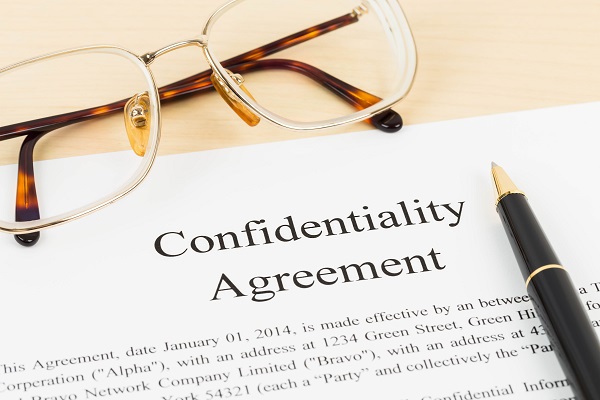
While seeking out hard-working employees and savvy contractors who can bring excellence in their work and innovation for new concepts and products to your company is a continual goal—and major challenge—the priority must always be to protect your business. Confidentiality may be required of all your full-time employees, but often the issue should be presented even more emphatically when bringing a new independent contractor on board. They may arrive with excellent references and you may even know them, but independent contractors might be with your company for only a short time and could walk away with extremely valuable knowledge later.
Confidentiality and non-disclosure clauses may be designed with projects and specific issues in mind. You may be rolling out an important range of new and innovative services for existing and potential clients, creating technology that is top secret, making products that are completely new or will accentuate a series of items you already provide, or designing a massive advertising campaign that is going to blow everyone within your niche out of the water. Such agreements may also be necessary when must hire a third party to create products or prototypes or provide services that center around trade secrets or proprietary company information—obviously, it is important that they keep their mouths shut regarding all the designs and data they may be privy too.
Consulting with a skilled business attorney is critical in the creation of such agreements so they both protect you and meet the current needs of your business; for instance, you and another business may be working together extensively, and will both be exchanging confidential information—or there may be a consortium or group working together, with everyone requiring protection regarding a variety of trade secrets. Skilled legal work is required also to make sure that the contact you are asking new employees and contractors to sign is enforceable in a court of law—something that may not be true of generic or DIY forms.
All expectations regarding confidentiality and non-disclosure should be outlined to include what is considered secret, methods of keeping business details confidential, time periods involved, and consequences regarding breaches of contract. If an NDA or confidentiality agreement has been broken and you are worried about the impact on your business, consult with a business litigation attorney like Shane Coons as soon as possible.
Do you have questions about creating contracts for employees, independent contractors, or resolving a business dispute? If so, call now at 949-333-0900 or email us at Shane.Coons@seclawoffices.com. Our law office represents clients involved in a wide range of businesses and legal issues, and we would be glad to review your case and help you explore your options.
